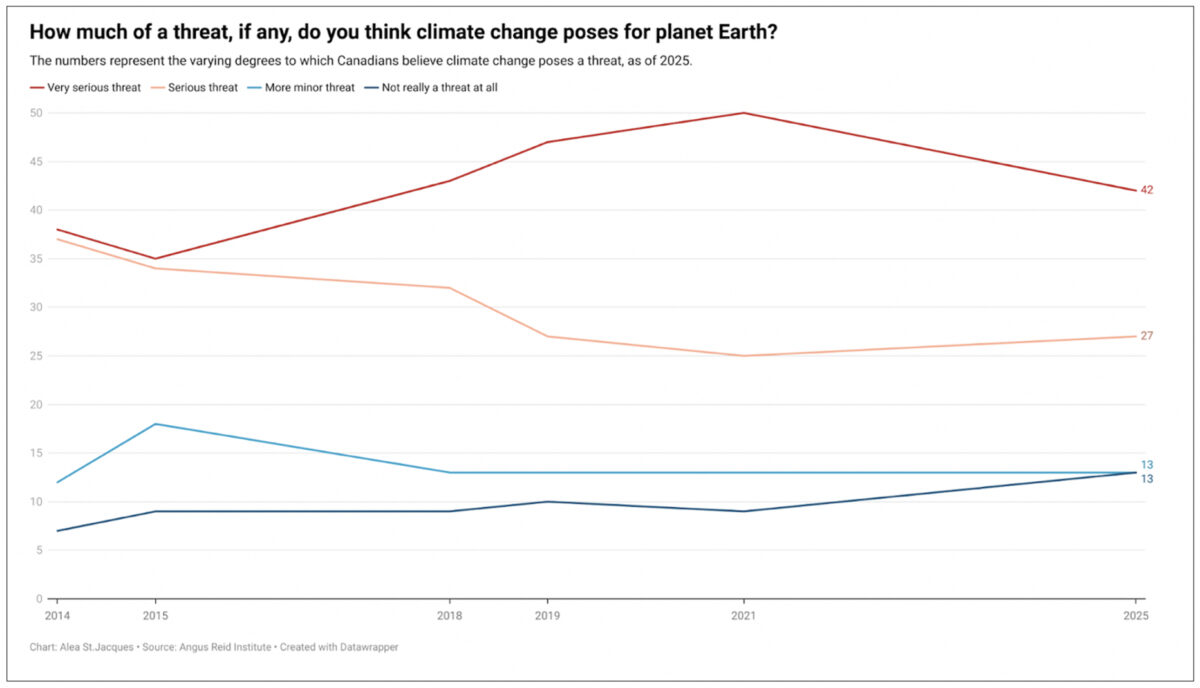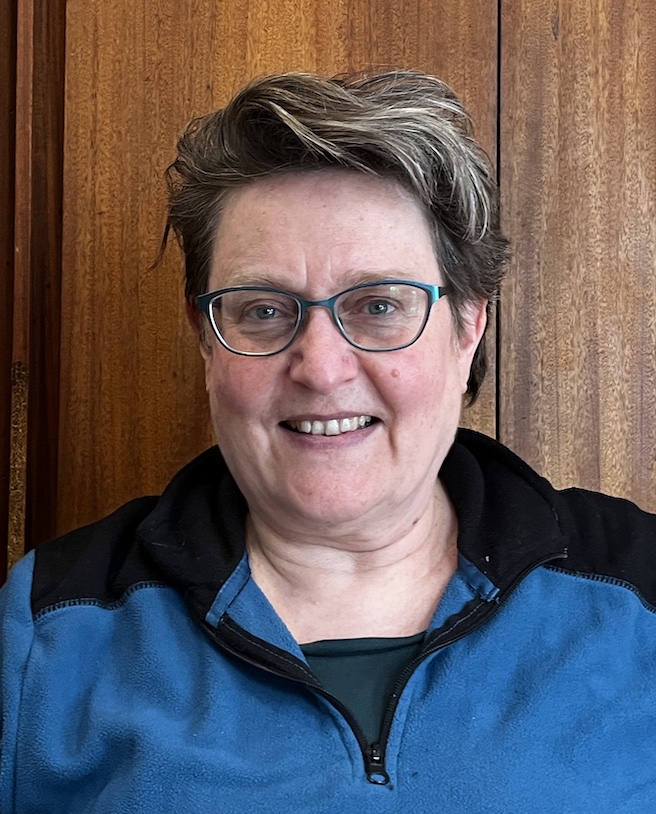As some vote as still being counted in the federal election, environmental advocates are highlighting a gap between public concern about climate change and the need for action, emphasizing the need for more effective communication and stronger proposals from all federal parties to bridge this divide.
A recent Angus Reid Institute poll indicated that nearly 70 per cent of Canadians see climate change as a serious threat, but experts say too few are taking meaningful climate action and politicians are failing to lead citizens to solutions.
Atmospheric scientist and science communicator Dr. Katharine Hayhoe says the assumption that more scientific information will lead to greater concern and action is not true.
She says “people with the highest degree of science literacy were not most concerned about climate change; they were most polarized.” She said that means understanding the science better often strengthened existing beliefs, leading to more entrenched viewpoints and sharper societal divides.
Hayhoe said this is because of motivated reasoning where individuals find and interpret information to confirm their beliefs.
But Hayhoe, chief scientist for The Nature Conservancy and a renowned climate change expert and communicator, added: “The first ingredient of hope is acknowledging the reality of our current challenges.”
Another facet of inaction is fear-based messaging without accompanying solutions, said Hayhoe.
“Fear and anxiety cause us to withdraw, to freeze, to give up rather than take action.”

Public opinion research conducted by Abacus Data over the last six months also found that 72 per cent of Canadians prioritize the cost of living and housing affordability over climate change. For this reason, Hayhoe said it’s important to connect climate change to what Canadians are most concerned about.
“We’re seeing climate change in all these things, but we’re not making that head to heart connection, helping people understand it.”
Ottawa-based science journalist Leah Geller echoed this sentiment and stressed the importance of “bringing (climate issues) down to bite-sized pieces and really identifying what matters to people.”
Geller suggests science communicators focus on the human health impacts of climate change, the economic benefits of climate action and on outlining solutions to foster engagement.
The barrier is not the science. … It’s bringing it back to what human beings, individuals, communities care about.
— Leah Geller, Ottawa-based science journalist
“The barrier is not the science. … It’s bringing it back to what human beings, individuals, communities care about,” she said.
Angela Keller-Herzog says that climate policy needs to be strong, science-based and to directly address the largest sources of greenhouse gas emissions — particularly the oil and gas sector, which accounted for 30 per cent of Canada’s emissions in 2023.
The Executive Director of Community Associations for Environmental Sustainability (CAFES), said the Conservative party’s climate agenda is aligned with an “oil bro billionaire agenda,” which she said represents the interests and demands of wealthy individuals and corporations in the Canadian oil and gas sector.

She expressed concern that the Liberal commitment to emissions caps appeared “wobbly” following its scrapping of the consumer carbon tax, suggesting the party might be susceptible to political and economic pressures that could lead them to backtrack or compromise further on climate change policies.
Keller-Herzog also criticized the expansion of fossil fuel infrastructure and subsidies that she said run counter to climate commitments.
“I think it’s the short-term greed of the oil and gas industry,” she said, aiming to “make as much profit as they can, as fast as possible.”
Beyond carbon pricing, Keller-Herzog said harmonized and tiered building codes, investments in electric vehicle charging infrastructure and nature-based solutions all have the potential to accelerate climate action.
“It doesn’t make sense to have a bunch of demand-reduction incentive programs for little consumers that are not actually the main problem in terms of emissions, and then leaving the large emitters unregulated,” she said.
In terms of communicating climate policies, Keller-Herzog said that mechanisms such as carbon taxes work, but the previous Liberal government’s communication of their benefits was insufficient.
To that end, Geller said: “Connecting to what matters in that moment — affordability and sovereignty is front of mind for everyone right now — so connect that to climate and there’s a direct line.”




